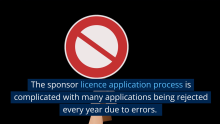Support migrant centric journalism today and donate

Citizenship and Immigration Canada have issued new guidance for staff processing applications for work permits for Intra Company Transferees with 'specialized knowledge'.
The new guidelines introduce tougher requirements to come in as a 'specialized knowledge' worker. In some cases there will also be a minimum wage requirement.
The new definition has been introduced as part of Canada's Economic Action Plan 2014. It is one of several changes which the government says will ensure that entry of temporary foreign workers (including intra company transferees) into Canada do not disadvantage Canadian workers.
Intra Company Transfer work permit
The Canadian Intra Company Transfer work permit is similar in some respects to the UK's Tier 2 (Intra Company Transfer) visa and the US L1 intra company transfer visas in that it allows international companies to transfer workers from their overseas operations to Canada. Qualifying workers must have worked for at least one year, full time, for their employer.Please note that the Canadian Intra Company Transfer work permit is not a visa. Once a foreign worker has received his/her work permit, he/she must then apply to CIC for a temporary residence visa.
A specialized worker must now demonstrate 'knowledge at an advanced level of expertise' AND 'proprietary knowledge of the company's product, service, research, equipment, techniques or management'.
Proprietary knowledge alone is not enough
Thus, as CIC explains, 'proprietary knowledge alone, or advanced expertise alone, does not qualify the applicant under this exemption'.CIC guidance for adjudicators is as follows.
An employee with an advanced level of expertise 'would require specialized knowledge gained through significant and recent experience with the organisation' and be 'used by the individual to contribute significantly to the employer's productivity'.
CIC would consider the following as being evidence of expertise;
- Skills which are 'unusual' and ' cannot be easily transferred to another individual in the short-term';
- Knowledge or expertise which is 'unusual both within the industry and within the host firm';
- Knowledge which is 'critical to the business of the Canadian branch'
- Knowledge of a particular business process which is 'not widespread across the organization, and not likely to be available in the Canadian labour market'
Proprietary knowledge
Proprietary knowledge is defined as 'company-specific expertise related to a company's product or services'.ICT workers must meet the following requirements:
- Employed by the Canadian employer
- Be under the direct, continuous supervision of the Canadian employer.
Above average salary
The wages paid to an ICT worker with the required standard of specialized knowledge, he/she should receive a wage commensurate with his/her expertise. This would mean he/she would 'typically receive an above average salary'. Expenses, hotel, transport etc, must not be included in the salary.With the increased difficulty in obtaining specialized knowledge work permits it may be worth considering that there are two other categories of work permit which are for:
- Executives
- Senior managerial
If you would like US visa advice, workpermit.com can help. WorkPermit.com is a specialist visa consultancy with 25 years of experience dealing with visa applications. We can help with a wide range of visa applications to your country of choice. Please feel free to contact us for further details.





















